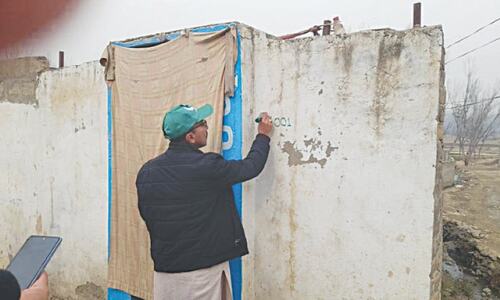ISLAMABAD, July 5: There is little to celebrate in the country -- and worries are galore -- as the present government completes its first 100 days on Sunday.
Even a faithful compliance with some of the promises Prime Minister Yousuf Raza Gilani made in his 100-day agenda was overshadowed by more spectacular political and administrative failures and seemingly unending economic hardships.
And the government has yet to come up with something more credible to reassure the people it will do better in the future.
Mr Gilani was the darling of parliament when he got a historic, unanimous vote of confidence from the National Assembly on March 29 before announcing priorities of the coalition government led by his Pakistan People’s Party (PPP).
But events took dramatic turns within 100 days, which found the new government struggling against heavy odds with some allies becoming distrustful all too soon, leaving the PPP to take the blame for all unpleasant actions such as big increases in petroleum, power and gas prices and military operations against militants in the North West Frontier Province and tribal areas.
The Pakistan Muslim League-N (PML-N) quit the cabinet only six weeks after joining it to protest the non-restoration of judges and is threatening to quit the coalition altogether if it were not done within this month while continuing its unchallenged rule in Punjab.
Reservations over certain government moves are being publicly voiced also by two NWFP-based smaller partners, the Awami National Party and the Jamiat Ulema-i-Islam-F.
Still worse, murmurs could be heard within the PPP about how a new leadership is running the country’s largest political party, which is also leading coalition governments in two provinces and sharing power in the other two, and directing the federal government.
The new government’s troubles encouraged the discredited Pakistan Muslim League-Q of President Pervez Musharraf’s loyalists to issue a ‘white paper’ to dub Mr Gilani’s performance as ‘100 days of betrayal’ and the isolated president himself to scoff at his detractors by saying at a business community dinner in Karachi on Friday: “I am not afraid.”
Some eyebrows were raised also when Chief Justice Abdul Hameed Dogar, whose standing is challenged by the lawyers’ community seeking to restore deposed Chief Justice Iftikhar Mohammad Chaudhry, asked the government on Friday to explain its position over a widely welcomed decision to commute unexecuted death sentences to honour the memory of Benazir Bhutto.
Although the issue was not on the top of the 100-day priorities, non-restoration of the deposed judges cost the government much in credibility as did the failure to check the price spirals – which all put together stole the shine from Mr Gilani’s fulfilled promises such as increase in salaries of government employees, higher minimum wages, restoration of labour and student unions, a limited austerity drive, facilities for agriculture, an income support programme for the poor, moves towards conserving energy and producing more electricity, and removal of some media curbs.
But a redeeming feature in a dismal situation was that the PPP itself was generally spared the blame while most fingers were pointed at party co-chairman Asif Ali Zardari and some of his close aides, particularly about the broken promises for judges’ restoration and a perceived avoidance of a possible impeachment of President Musharraf by parliament.
A constitutional package, which seemed to be the brainchild Mr Zardari and Law Minister Farooq Naek, could hardly satisfy the demand for an early reinstatement of judges sacked by President Musharraf under his controversial Nov 3 emergency proclamation, though it also seeks to clip the presidency of its assumed powers to dissolve the National Assembly, sack a prime minister and appoint armed forces chiefs and provincial governors but stands little chance of being adopted by parliament.














































Dear visitor, the comments section is undergoing an overhaul and will return soon.